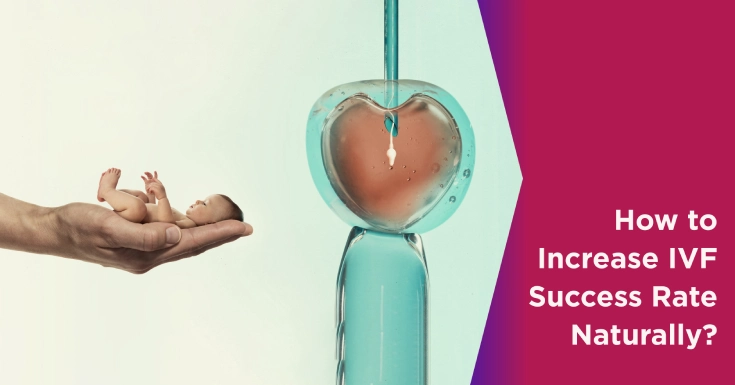Factors Influencing Semen Quality and Male Fertility

Difficulty in conceiving is a common problem for couples in India now-a-days. Don’t let a string of negative pregnancy tests dishearten you. Doctors advise young couples in their 20s and early 30s to try naturally for up to a year. Conception is a very tricky concept and happens only during the fertile window of a woman’s menstrual cycle. You may not get pregnant in the very first attempt, however even after trying naturally for 1 year if you are unable to conceive, then it is a matter of concern.
Over the years, we have seen more and more couples open up about their fertility problems. They are proactively seeking expert help about their reproductive health. It’s no longer a topic behind closed doors. At Nova IVF Fertility, you get the best chance at pregnancy thanks to the advanced technology and excellent guidance from internationally acclaimed fertility specialists that the industry has to offer. In this blog, we will dwell on some guidelines that will help you decide when you should consult a fertility specialist.
The Age Factor
If you are below 35 years old and have tried naturally for over 12 months to get pregnant, it’s time to visit a fertility specialist. In Indian women, the ovarian reserve generally starts declining rapidly from the age of 35. With aging, the egg reserve of an otherwise healthy woman starts depleting and gets completely exhausted by the age of 40-45 years leading to menopause.
If you are above 35 years old and have been trying to conceive naturally and failing for 6 months or more, visit a fertility specialist immediately. Women over the age of 35 years have a lesser chance of pregnancy even through assisted reproductive techniques, because the eggs may not be of the best quality at a later age. With age, other complications can also arise leading to a depleted ovarian reserve.
The Health Factor
There are several health conditions that have adverse effects on the fertility potential of women. Thyroid disorder in women can lead to hormonal imbalances. Women who suffer from thyroid diseases are known to be affected with conditions like infertility, miscarriages, abnormalities in foetal brain development, etc. However, if the thyroid disorder is identified and the patient takes medication, then the woman can conceive through fertility treatment. During the treatment procedure, it is advised that you consult your fertility specialist regularly.
Women suffering from PCOS or endometriosis are advised to consult the fertility specialist when they decide to get pregnant. Endometriosis leads to an unhealthy pelvic environment that may be associated with damaged tubes and weaker ovaries, resulting in lower chances of natural conception.
Undiagnosed fertility issues can be another reason for when to consult a fertility specialist. In these cases, symptoms to look out for are, irregular periods, pain in pelvic region, an absence of periods, and multiple miscarriages that may have occurred in the past. If you have any of these symptoms, it is advised to reach out to a fertility specialist without wasting further time.
Women suffering from chronic medical conditions like kidney complications, hypertension, and cancer, genetically transferred conditions like diabetes, Alzheimer’s disease, etc. are advised to consult a fertility specialist for a treatment plan to achieve a healthy pregnancy.
The Male Factor
Infertility is not a woman’s problem alone. Male factors are found in 40-45% of all infertility cases. In men, infertility is generally because of poor sperm factors that can occur due to associated conditions like cancer or cancer treatment, testicular or pelvic injury, varicocele, diabetes, obesity, etc. In many cases however, there is no underlying cause found. A semen analysis should always be done right as a part of the initial evaluation, so that further treatment options can be decided accordingly.
Problems such as erectile dysfunction and premature ejaculation can also cause difficulties in conceiving and they are generally addressed by sexologists and psychologists. Any type of infections or sexually-transmitted infections (STIs) should be treated immediately, for they can affect the quantity and the quality of sperms. If any of these factors apply to you or your partner, it is advised to consult a fertility specialist immediately. Fertility treatments like IVF and ICSI help with male infertility.
Infertility in men and women can happen because of many reasons, so it is highly advisable that one should not wait and try home remedies as age is an important contributing factor for the chances of getting pregnant. It is a battle against time and so, the sooner you visit the fertility specialist, the better for you.
 Infertility Counselling
Infertility Counselling Female Infertility Treatment
Female Infertility Treatment Andrology Treatment
Andrology Treatment Fertility Enhancing Surgeries - Female
Fertility Enhancing Surgeries - Female Fertility Enhancing Surgeries - Male
Fertility Enhancing Surgeries - Male Endoscopy Treatment
Endoscopy Treatment IUI Treatment
IUI Treatment IVF Treatment
IVF Treatment ICSI Treatment
ICSI Treatment Advanced IVF Solutions
Advanced IVF Solutions Embryology
Embryology Vitrification Egg, Embryo, Sperm Freezing
Vitrification Egg, Embryo, Sperm Freezing Preimplantation Genetic Testing (PGT)
Preimplantation Genetic Testing (PGT) Donation Program Embryo / Egg / Sperm
Donation Program Embryo / Egg / Sperm Self-cycleTM IVF
Self-cycleTM IVF

 Self-cycleTM IVF
Self-cycleTM IVF










